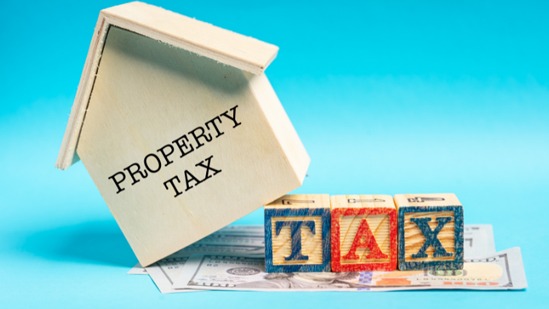Property Taxes made easy: rules, refunds, and how to avoid fines
By Bricksnwall | 2025-11-16

Property owners can utilize online resources from their city to figure out how much their property is worth by entering the type, size, zone, and use. Here's everything you need to know.
You have to pay property tax, but the laws
are complicated and different in each state. Learn about the three main ways
your tax is calculated, how to identify refunds you can get, and what happens
if you don't pay your taxes on time.
Systems For Figuring Out Property Taxes
The Seventh Schedule of the Indian Constitution says that taxes on land and structures are a state matter. Sharma says, "Because of this, the rate of property tax and the way it is calculated are different in each state."
In India, most cities use one of three main
systems to figure out how much property tax to charge: the unit area value
system, the capital value system, and the yearly rental value system.
The unit area method is used in cities like
Delhi and Bengaluru. In this system, the tax is based on a set amount for each
square foot or square meter of built-up space. Mumbai uses the capital value
model, which means that the tax on a property is based on its market or
guideline value.
Chennai and some other cities use the annual rental value method, which looks at how much rent a property could make. Things like where the property is, how it will be used, how old it is, and how much space it has all have a big impact on the eventual tax bill. Sachin Vyas, Principal Partner and Chief Sales Officer of Square Yards, adds, "This means that properties in the same city can have different tax liabilities."
Tax Factors and Rebates that affect Taxes
It takes a lot of time for a property owner
to figure out how much tax they owe because there are so many factors to
consider, such as whether the property is residential or commercial, whether it
is a flat or a floor, which floor it is on, whether it is in a Tier-1, Tier-2,
or Tier-3 city, and the size of the property to figure out the tax rate, which
is usually based on slabs, and finally, rebates.
A property owner should know about the many
tax breaks that are available.
Rajiv Sharma, a partner at Singhania &
Co., says, "Some well-known rebates are the Senior Citizen Rebate, the Women
Owner Rebate, the Property Usage Rebate, the Floor-wise Rebate, the Specific
Group Rebate (for example, for war widows, people with disabilities, and former
defense services), the Early/Lump-Sum Payment Rebate, and the Rebate for
Eco-Friendly Initiative."
Paying and Figuring out Property Taxes Online
Municipal corporations offer online tools
that property owners can use to find out the assessed value or rental value of
their property. Most city portals have self-assessment sections where owners
can enter information about their property, like its kind, size, zone, and use,
to get an estimated value.
Fines and Grace Periods
The requirements for late payments are
different in each state, but most city governments charge a monthly fee or
interest of 1% to 2% on property taxes that are past due. "Some cities
have a short grace period before fines kick in, depending on the rules in that
area. "Some places also have periodic amnesty programs that let people
avoid or lower their penalties and interest for a short time if they pay off
their debts," Vyas explains.
If you don't pay for a long time, the
penalties may get worse. They could include more fees or notifications from the
city. These steps are meant to encourage people to pay on time and give them
options for relief during particular policy drives.
Source: Hindustan Times







